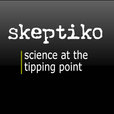
Summary: The author of, Sum: 40 Tales From the Afterlife, discusses his work as a neuroscientist and author. Join Skeptiko host Alex Tsakiris for an interview with Baylor College of Medicine Neuroscientist and author, Dr. David Eagleman. During the interview Dr. Eagleman discusses why survival of consciousness and near death experience (NDE) research isn’t a prominent topic among neuroscientists, “I think it should be front and center. I mean, my impression is that scientists have different personalities and some are quite conservative and they like to stick with the party line. Now, I should specify that what the party line is at this moment in history is reductionism or materialism, which means you are just built out of your pieces and parts and that’s it. When those pieces and parts break and go away, then you go away. That’s a perfectly reasonable hypothesis and may well be right. I’m not criticizing that hypothesis, but I am saying that there are other possibilities, as well.” Eagleman continues, “I go all around and give talks to my colleagues at universities all around, and what I see in some universities in some places is you’re not even allowed to talk outside of that paradigm. Anything that gets said is really pooh-poohed. So I really admire these guys who are looking for the paradigm-busters.” Dr. David Eagleman’s website Play it: Download MP3 (18:00 min.) Read it: Welcome to Skeptiko, where we explore controversial science with leading researchers, thinkers, and their critics. I’m your host, Alex Tsakiris. On this episode of Skeptiko, I have an interview with someone I’ve been trying to get on Skeptiko for a couple of years. Dr. David Eagleman, as you’ll learn, is a neuroscientist from the Baylor College of Medicine who wrote a book a couple of years ago all about the afterlife, but the book was a novel. The book got quite a bit of publicity. I actually heard about him first on NPR, the National Public Radio here in the U.S. The book became a best-seller and he went on to do all sorts of amazing stuff. But what always got me about his book is as a neuroscientist, how can you write a book about the afterlife and never mention afterlife science, near-death experience science, reincarnation science, any of that stuff? It’s like the only way we can approach this topic is fictional because there isn’t anything really here. I mean, that’s the kind of implication. So I really wanted to talk to this guy. It took a little bit of pounding and persisting, but eventually he was able to give me a short interview. I wish the interview was longer but it was all the time he had and I’m grateful for it. In the process of doing the interview and doing the research for the interview, I guess my frustration or anger kind of diminished a little bit, especially when I read his book. It’s really well-written. It’s poetic. It’s just a beautiful book in many ways. But when I got to the core issue in terms of how science can approach this topic, I ran head into The Big Lie. When it comes to psi research in general and near-death experience science in particular, the Big Lie goes something like this-it was first articulated on this show on one of the very early episodes by Dr. James Alcock who’s a psychologist and a well-known skeptic, a public guy, who’s recently been in the news, by the way, as somebody they trotted out to give some outrageously exaggerated counter-argument to Daryl Bem’s article, just an interesting little side note there. But anyway, very early on in Skeptiko, I had Dr. Alcock on and here’s his version of The Big Lie: “If we could come up with good data that showed there’s something to the paranormal, parapsychologists would be trampled by psychologists and physicists and so on rushing to the study of it.” Now, it was actually kind of fun digging up that quote fro[...]
